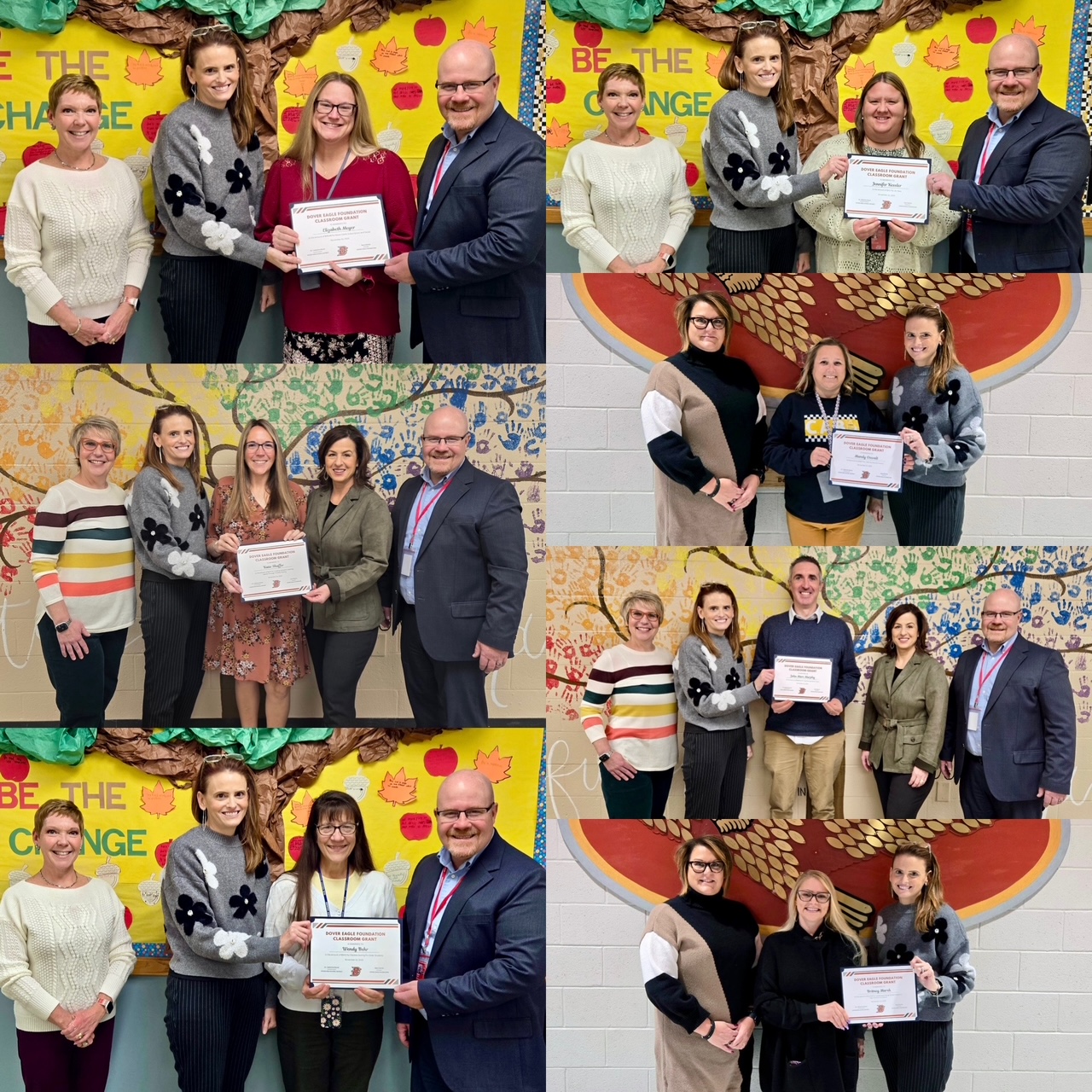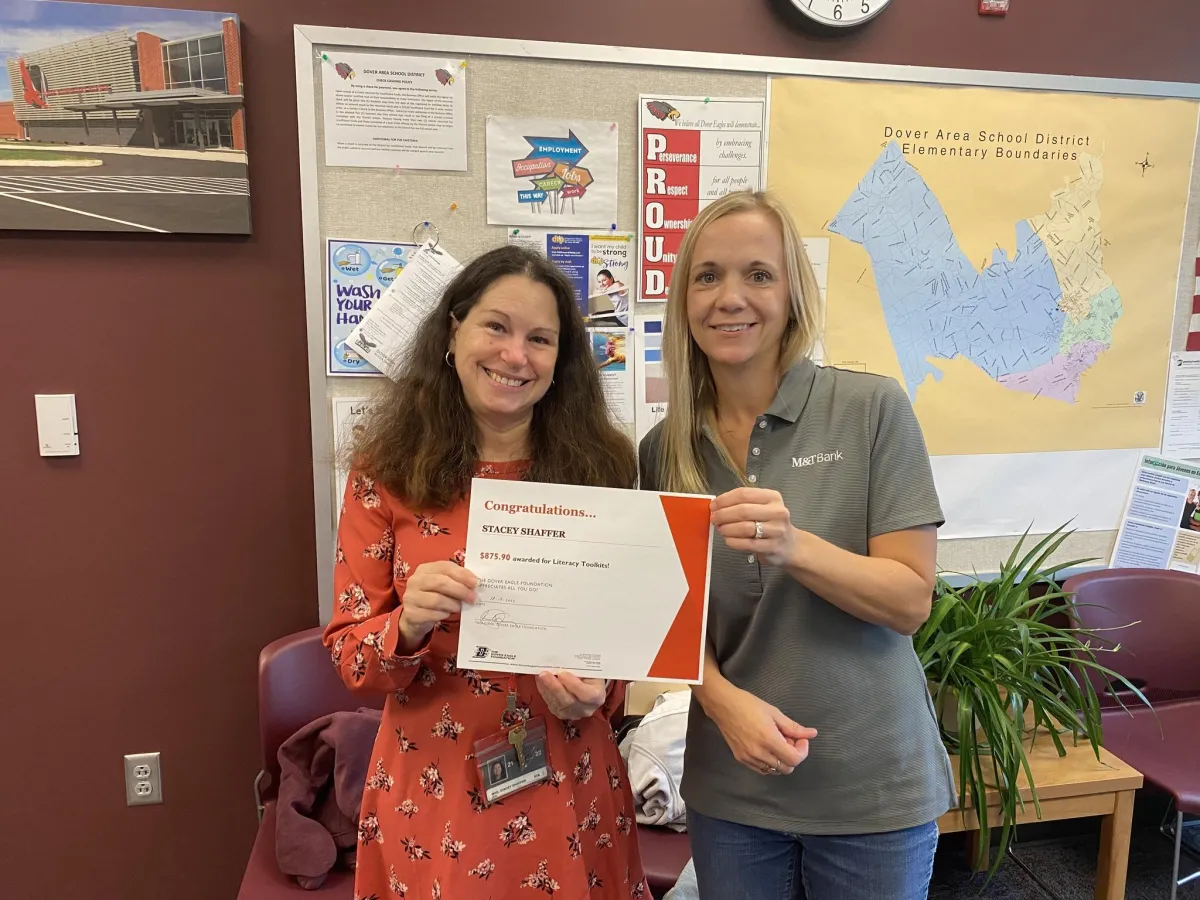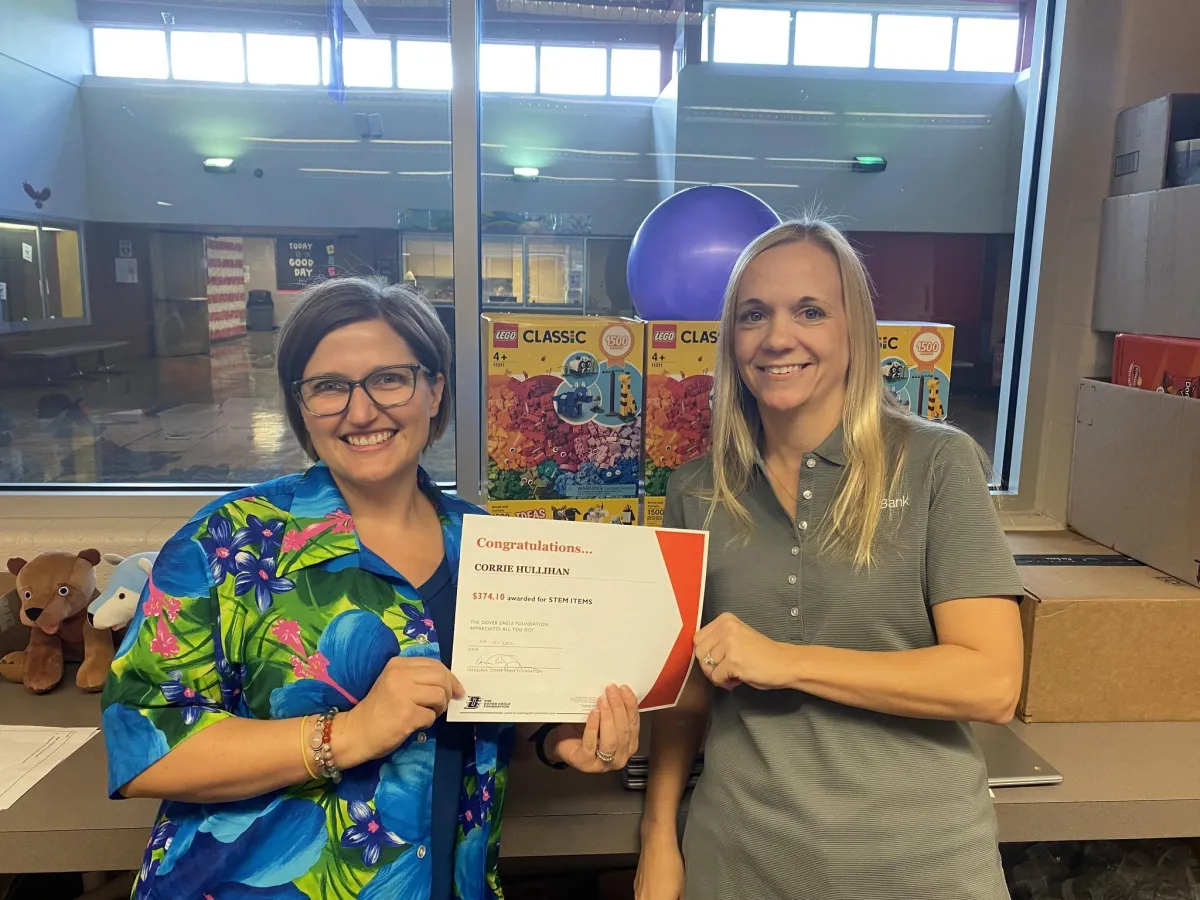TEACHER GRANTS
Teacher Grants
One of the ways the Foundation makes an impact in the Dover Area School District is through teacher grants. Educators may apply for a classroom grant to help fund a project or program that is not covered by the district's budget.
How To Apply
Click here to apply for a Teacher Grant:
Teacher Grant Award Winners

November 2025
The Dover Eagle Foundation proudly awarded grants to our incredible Dover teachers. We are so grateful to be able to support education in Dover and for the opportunity to invest in the future of our community. Congratulations to all the recipients - your dedication inspires us every day!
Fall 2025 Award Winners:
Dover High School
Britney Marsh
Mandy Oswalt
Leib Elementary
John Marc Murphy
Katie Shaffer
Weiglestown Elementary
Wendy Behr
Jennifer Kessler
Elizabeth Meyer

Congratulations to Pete Bowen and the students of Dover Area High School for being selected for a $1,000 grant to be used towards the design and fabrication of their utility vehicle project. Students in the Ag Mechanics and Engineering program have been working together to create a utility vehicle. The goal of this project is to create a Utility vehicle completely from scratch. This vehicle will allow Ag Mechanic students to better understand how systems operate and function together. They will also be tasked with servicing and maintaining the machine. Currently our utility vehicle consists of a frame that was fabricated 2 years ago. Last semester students have been tasked with the challenge of getting our vehicle to roll, steer, and have a working dump bed. As this year progresses we will be ready to introduce our power source which will drive wheels. At this time we need the funds to purchase hydraulic equipment to assemble, test, and then apply to our vehicle.
Congratulations to Stacey Shaffer on being awarded a $875.90 grant for Literacy Toolkits. Stacey's educational goal is to solidify the foundation literacy skills of our Tier I students. This grant will be used to build the literacy skills of our students. "Literacy Toolkits" will be created to be checked out of our book room for classroom teachers to use in small groups during reading instruction. Research has shown that using manipulatives helps students to learn. These materials would be used to tap the sounds heard in words, map (write) the sounds in words and read words and play with sounds. Teacher could borrow toolkits and use them daily in their small group reading instruction. The make up of the Toolkit would vary by grade level. Teachers could keep the Toolkits as long as they were being used and return them at the end of the year so the Title Team could reorganize and clean the material.

Congratulations to Stacey Shaffer on being awarded a $875.90 grant for Literacy Toolkits. Stacey's educational goal is to solidify the foundation literacy skills of our Tier I students. This grant will be used to build the literacy skills of our students. "Literacy Toolkits" will be created to be checked out of our book room for classroom teachers to use in small groups during reading instruction. Research has shown that using manipulatives helps students to learn. These materials would be used to tap the sounds heard in words, map (write) the sounds in words and read words and play with sounds. Teacher could borrow toolkits and use them daily in their small group reading instruction. The make up of the Toolkit would vary by grade level. Teachers could keep the Toolkits as long as they were being used and return them at the end of the year so the Title Team could reorganize and clean the material.

Congrats to Corrie Hullihan for receiving a grant for $374.10 to be used towards Stem Items. This is the start of a larger, long-term project. We find value in STEM as a school community, but sometimes integrating it into a content area is easier said than done. This year, the goal of the North Salem Elementary STEM committee is to come up with ways for teachers to implement STEM in a very accessible way. Each marking period we will give suggestions to teachers on how they can utilize the 4 Pillars of STEM (according to LIU12) which are Code, Create, Design, and Build. In the 2nd marking period, we are focusing on Code, but in the 3rd marking period, we would love to have teachers be able to use the “Build” concept to enhance classroom learning. Legos can be used to understand math concepts such as fractions and measurement, as well as building plant or animal models in science and even making settings come to life in a story for ELA. We are looking to supplement our small Lego collection with 6 more 1500-piece Lego sets in order for a class to be building collaboratively in small groups.
Congrats to Britney Marsh of Dover Area High School for being selected as a grant recipient for $250.00. This grant will help our High School students learn more about genetic engineering through tissue cultures. This project will help students understand the procedure that is often used to propagate many plants of the same genetic background. It will also help them understand the importance of sterile techniques. To apply plant tissue culture technology for clonal propagation, assisting plant breeding and plant improvement, recovering plants from transformed cells, and production of valuable plant biochemical. It will also help describe genotype specificity and how it impacts genetic engineering. To explain how the process of tissue culture is done.
